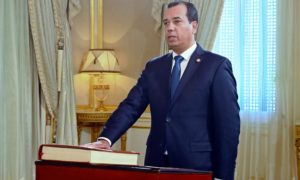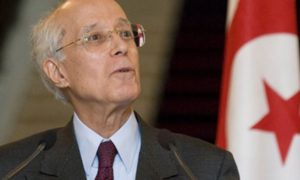Yesterday, Ennahda Shura Council decided to delegate party leader Rached Ghannouchi to conduct negotiations to change the government of Elyes Fakhfakh.
To this, the PM hit back by annoying a government reshuffle in the upcoming days. On his part, president of the republic Kais Saied said that Talks about consultations on the line-up of a new government is slander and is intended to mislead public opinion. I will not accept any consultations with anyone as long as the current Prime Minister holds full powers and his legal position remains unchanged,” warned President Saied.
But what does the constitution says, The Tunisian constitution had set a number of mechanisms to change the government, through chapters 97, 98, 99 and 100.
- Article 97 states “Votes may be taken on a motion of censure brought against the government based on a reasoned request presented by at least one-third of the members to the Speaker of the Assembly of Representatives. The motion of censure cannot be voted on until fifteen days have passed since the date the motion was presented to the Speaker of the Assembly. A vote of no-confidence in the government requires the vote of an absolute majority of the members of the Assembly of the Representatives of the People, and the presentation of an alternative candidate to head the government whose candidacy must be approved in the same vote. The President of the Republic shall entrust this candidate with the task of forming the government, according to the provisions of Article 89. In the event of failure to attain the necessary absolute majority, a motion of censure may not be reintroduced for a minimum period of six months. The Assembly of the Representatives of the People may withdraw its confidence in a member of the government after a reasoned request is submitted to the Speaker of the Assembly by at least one-third of the members. Withdrawal of the Assembly’s confidence in the member of the government requires an absolute majority of votes”.
- Article 98 indicates ” The resignation of the Head of Government entails the resignation of the entire government. Resignation shall be submitted in writing to the President of the Republic who notifies the Speaker of the Assembly of the Representatives of the People. The Head of Government may request the Assembly of the Representatives of the People to give a vote of confidence to the government to continue its work. The vote of confidence shall be by an absolute majority of the members of the Assembly of the Representatives of the People. Should the Assembly not renew confidence in the government, the latter shall be deemed to have resigned. In both cases, the President of the Republic shall assign the person who is most capable to form the government in accordance with the provisions of Article 89″.
- Article 99 on Vote of confidence explains that “The President of the Republic may ask the Assembly of the Representatives of the People to conduct a vote of confidence in the government on a maximum of two occasions during the entire presidential term. Confidence is voted by the absolute majority of members of the Assembly of the Representatives of the People. In the case of non-renewal of confidence, the government is considered to have resigned. In this case the President of the Republic asks the person deemed most capable to form a government in a period not exceeding thirty days in conformity with the first, fifth, and sixth paragraphs of Article 89. 31 Final Constitution of the Tunisian Republic adopted on 26 January 2014 This unofficial translation was first prepared by UNDP and then reviewed by International IDEA (www.idea.int) If the period expires without the formation of the government, or if the government does not obtain the confidence of the Assembly, the President of the Republic may dissolve the Assembly of the Representatives of the People and organize early legislative elections after a minimum of forty-five days and a maximum of ninety days. If the Assembly renews its confidence in the government on the two occasions, the President of the Republic will be considered to have resigned”
- Article 100 on Vacancy states that “If the office of Head of Government becomes permanently vacant for any reason except for resignation and withdrawal of the confidence of the Assembly, the President of the Republic shall ask the candidate of the ruling party or coalition to form a government within one month. If this period expires without forming a government, or if the government formed fails to receive a vote of confidence, the President shall ask the individual deemed most capable to form a government which presents itself before the Assembly for the purpose of obtaining a vote of confidence in accordance with the provisions of Article 89. The outgoing government shall continue to administer government business under the supervision of one of its members to be selected by the Council of Ministers and nominated by the President of the Republic until the new government takes up its functions”.
What's happening in Tunisia?
Subscribe to our Youtube channel for updates.

















































